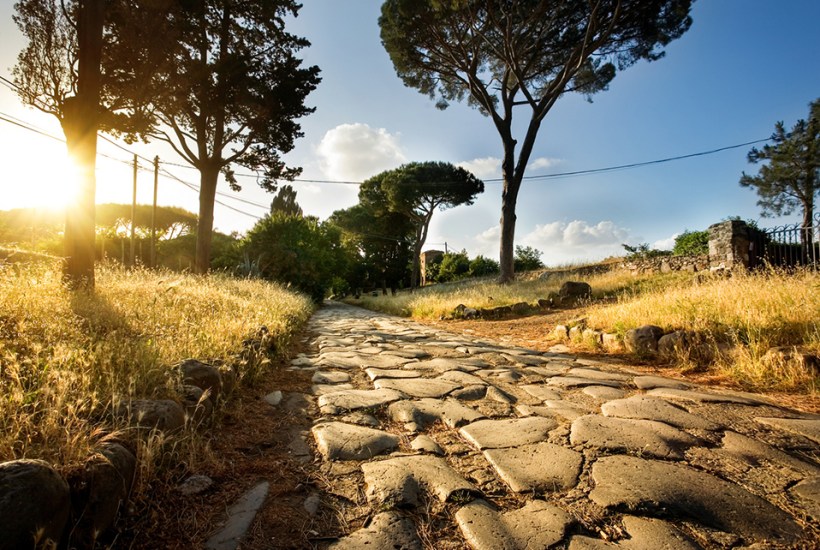Whatever the problems involved in building, let alone finishing, HS2, it is hoped that it will replicate what was ultimately achieved – prosperity, intentionally or not – by the 53,000 miles of roads with which Rome covered its empire (and so successfully that prosperity is now found wherever networks of Roman roads were established across Europe, including Cornwall).
The first Roman road was the Via Appia (named after its proposer Appius Claudius), built in 312 bc. It connected Rome with the port of Brindisi 300 miles south; it also offered easy crossing to the wealthy Greek East. This became of great importance: travel by ship, far faster than by road, became vital for economic expansion.
But the main purpose was military: massive armies with their wagon-loads of supplies needed a firm surface on which to travel. Once built, the roads also sped official communications via (Latin for ‘road’, cf. ‘way’) relays of horses. The point was that Rome was then in the process of conquering Italy. Its purpose was not to create a collection of independent city states, as Greeks had, but settlements and cities with military outposts which were new foundations, clones of Rome, nominally independent but part of a greater whole, bound together by citizenship and laws. Roads were built as Rome’s conquests increased. They gave Rome control. Lyon, for example, became the centre of a network connecting Britain and Germany to Rome.
Once built, roads needed repair and upkeep, especially if the emperor was visiting. Inscriptions proclaimed how rich locals paid to repair a road that had collapsed, been neglected or was badly constructed (shock!) in the first place. One of the tablets from Hadrian’s Wall describes delays in receiving supplies from Catterick for that reason. All roads, of course, led to Rome. The result was the expression of control over the empire’s whole landscape – river, marsh, desert and mountain alike – for the benefit of the whole populace. But roads did not come cheap. Nor do railways. Plus ça change…
Got something to add? Join the discussion and comment below.
Get 10 issues for just $10
Subscribe to The Spectator Australia today for the next 10 magazine issues, plus full online access, for just $10.
You might disagree with half of it, but you’ll enjoy reading all of it. Try your first month for free, then just $2 a week for the remainder of your first year.








Comments
Don't miss out
Join the conversation with other Spectator Australia readers. Subscribe to leave a comment.
SUBSCRIBEAlready a subscriber? Log in